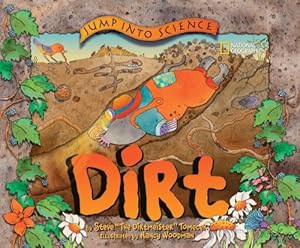DIRT: Is soil with a bad reputation.
5 reasons why you should let your kids get dirty
1. "Hygenie Hypthosis" The hygiene hypothesis proposes that childhood exposure to germs and certain infections helps the immune system develop. This teaches the body to differentiate harmless substances from the harmful substances that trigger asthma. In theory, exposure to certain germs teaches the immune system not to overreact. Thus kids that Play in Dirt are healthier: Being exposed to high amounts of bacteria, and other microbes in the soil help build immune system. An increase in technology may have a relation to an increase in auto-immune diseases, versus the past.
"Why Dirt Is Good: 5 Ways to Make Germs Your Friends," by immunologist Mary Ruebush, Ph.D.
2. Dirt is outdoors - Based on Richard Louv's hypotheis,"nature deficient disorder" states that human beings, especially children, are spending less time outdoors.. Recent studies show that on average children spend 7 hours a day inside and infront of technology. This trend has been linked to an increase in obsiety, mental illnesses, and vitamin D diffecencies. By "unplugging" your kids from technology and getting them outside they are less likely to develop mental illnesses like ADHD, depression, and anxiety.
3. Dirt + Play = (: - Do you remember making mud pies as a kid, wasn't it one of the highlights of your childhood? It is pretty easy to see the effects of being outside on your children. Kids are different when they are outside; free of schedules, pressures of school and sports, dirt offers a stress free environment. Research also indicates that there are microscopic bacteria called Mycobacterium vaccae that increase levels of serotonin.

4. Creative play - Playing in dirt can help with development. Through freely chosen outdoor play activities children learn some of the skills necessary for adult life, including social competence, problem solving, creative thinking, and safety skills (Miller, 1989; Rivkin, 1995, 2000; Moore & Wong, 1997). When playing outdoors, children grow emotionally and academically by developing an appreciation for the environment, participating in imaginative play, developing initiative, and acquiring an understanding of basic academic concepts such as investigating the property of objects and of how to use simple tools to accomplish a task (Kosanke & Warner, 1990; Guddemi & Eriksen, 1992; Singer & Singer, 2000).
Outdoor play also offers children opportunities to explore their community; enjoy sensory experiences with dirt, water, sand, and mud; find or create their own places for play; collect objects and develop hobbies; and increase their liking for physical activity.
5.Encourages a passion for preservation- By playing in dirt kids build an understanding and love for the earth, this love will stay with them for years.
Mud Party for Kids from Growing a Jeweled Rose

Books and other references









No comments:
Post a Comment